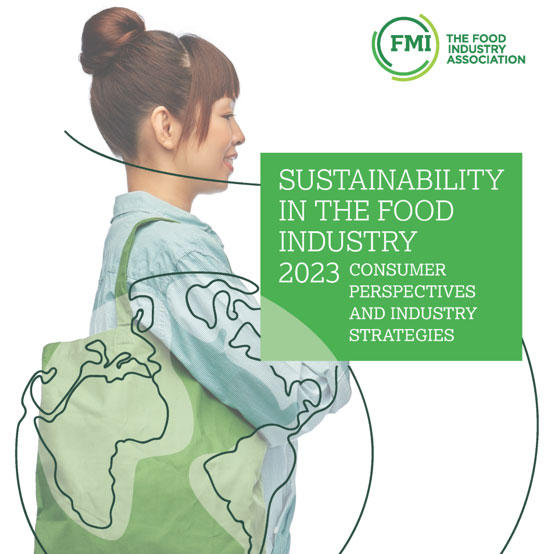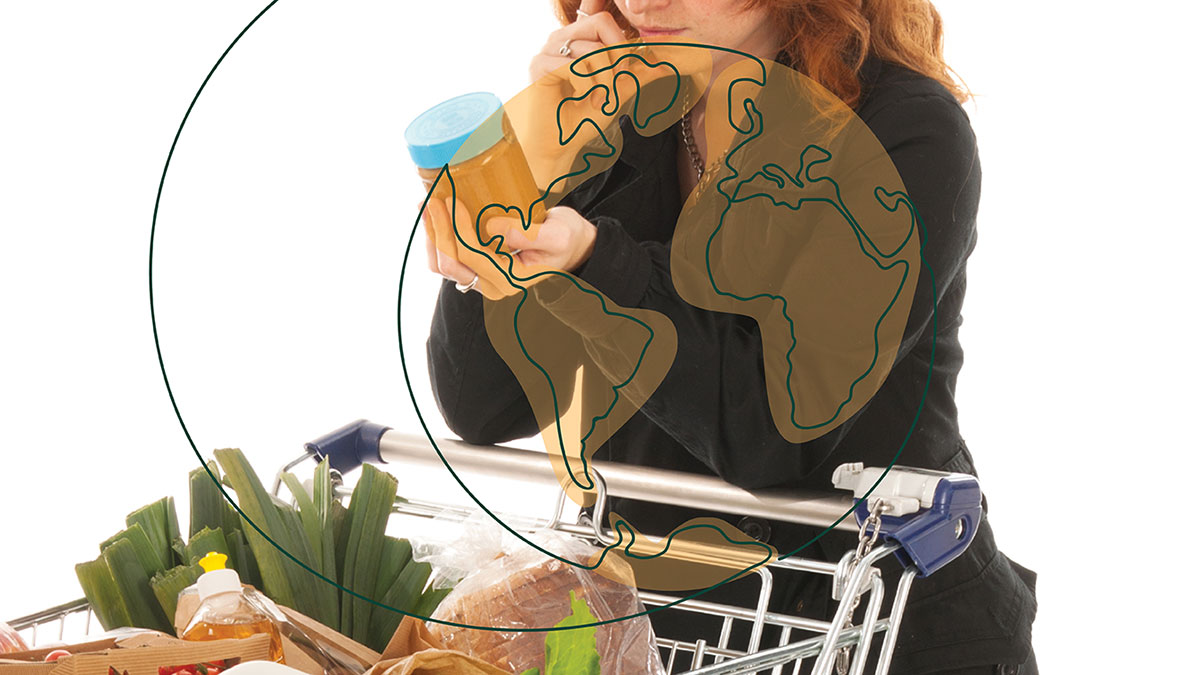 By Andy Harig, Vice President, Tax, Trade, Sustainability & Policy Development, FMI
By Andy Harig, Vice President, Tax, Trade, Sustainability & Policy Development, FMI
I have a friend who got the quote, “I know I am on the right track when things stop being easy” tattooed across his back. I’m pretty sure he took this off a poster in the gym where he works out, but he swears it’s a quote from Matthew McConaughey.
Disputed provenance and the questionable choices of my friend aside, the sentiment expressed actually captures the feeling a lot of companies have about their sustainability journeys. The resistance they face in pursuing their goals – from suppliers, from regulators, from activists – must signal they’re doing something right, especially when that resistance comes from different directions. We’re so conditioned to believe that, in the words of Theodore Roosevelt, “Nothing in the world is worth having or worth doing unless it means effort, pain, difficulty,” that sometimes we mistake resistance as a requisite for progress.
But part of the reason these efforts can feel so difficult is that you have a seemingly endless series of obstacles, limited resources, and constantly moving goal posts. Under these conditions, how do you know if you’re moving in the right direction? One answer is to conduct a materiality assessment.
A materiality assessment is a formal review that engages stakeholders inside and outside of a company to explore and prioritize the ESG issues that are important (or material) to the company in financial, social and cultural terms. Ideally, this assessment will lead to a renewed focus on a group of key areas and the creation of clear goals, metrics and timeframes for progress on addressing these issues.
FMI recently engaged Kearney, a global consultancy, to conduct a materiality assessment of FMI’s sustainability efforts on behalf of the food industry. Three significant transformations within the industry helped give rise to the question of “are we on the right track” and led to the commissioning of this assessment:
- FMI expanded its membership from food wholesale and retail to include product suppliers;
- Sustainability has moved out of a unique silo staffed by “sustainability professionals” to virtually every department in food companies, vastly expanding the universe of people who have “sustainability” as part of their job requirements; and
- COVID radically transformed the industry in an incredibly short period of time – not just operationally but also perceptually in the eyes of the public.
The results of this effort were eye opening and led to a renewed focus on three distinct areas of effort:
- Food waste
- Packaging and plastics
- Greenhouse gas (GHG) and science-based commitments for reduction
We also heard that no one was able to “go it alone,” and we received guidance to continue and expand our industry outreach to partners up and down the supply chain, as well as NGOs and lawmakers. FMI needs to, we were told, harness as many of the resources available out there and operate as a kind of “force multiplier” on behalf of the industry.
On November 9, I was invited by one of our industry partners - the Ratio Institute - to participate in a webinar discussing FMI’s experience with our materiality assessment and offering ideas to food retailers on the value such an experience offered. A recording will soon be available on the Ratio website. I’d urge you to consider giving it a listen when it becomes available. But at the risk of spoiling the session, I recommended the process for companies of all sizes and praised the sustainability insights offered by the materiality assessment FMI commissioned.
A special thanks to all of the FMI members and partners who took the time to participate in our materiality assessment. If you would like to talk more about this issue and whether an assessment might be right for your company, I’m glad to answer any questions you might have (aharig@fmi.org).


 Industry Topics address your specific area of expertise with resources, reports, events and more.
Industry Topics address your specific area of expertise with resources, reports, events and more.
 Our Research covers consumer behavior and retail operation benchmarks so you can make informed business decisions.
Our Research covers consumer behavior and retail operation benchmarks so you can make informed business decisions.
 Events and Education including online and in-person help you advance your food retail career.
Events and Education including online and in-person help you advance your food retail career.
 Food Safety training, resources and guidance that help you create a company food safety culture.
Food Safety training, resources and guidance that help you create a company food safety culture.
 Government Affairs work — federal and state — on the latest food industry policy, regulatory and legislative issues.
Government Affairs work — federal and state — on the latest food industry policy, regulatory and legislative issues.
 Get Involved. From industry awards to newsletters and committees, these resources help you take advantage of your membership.
Get Involved. From industry awards to newsletters and committees, these resources help you take advantage of your membership.
 Best practices, guidance documents, infographics, signage and more for the food industry on the COVID-19 pandemic.
Best practices, guidance documents, infographics, signage and more for the food industry on the COVID-19 pandemic.
